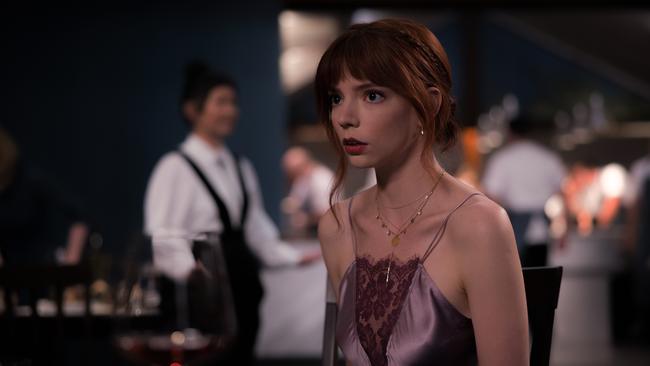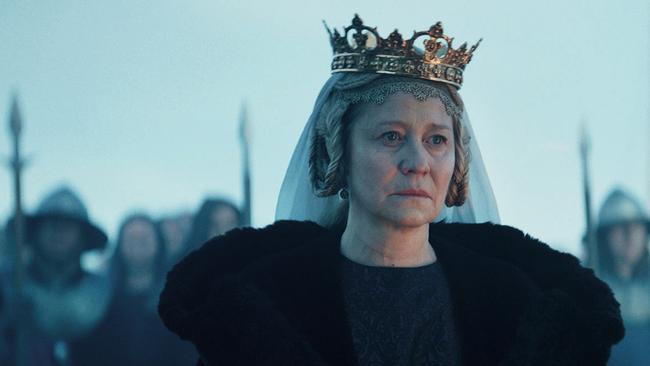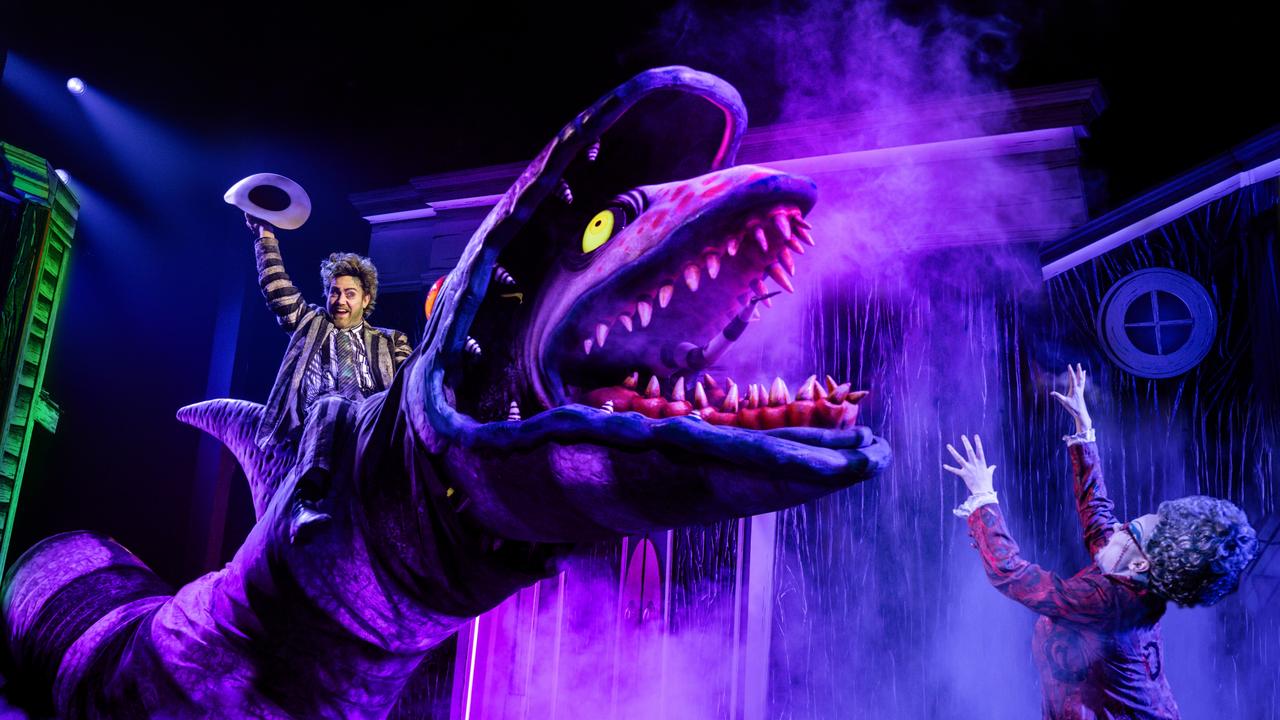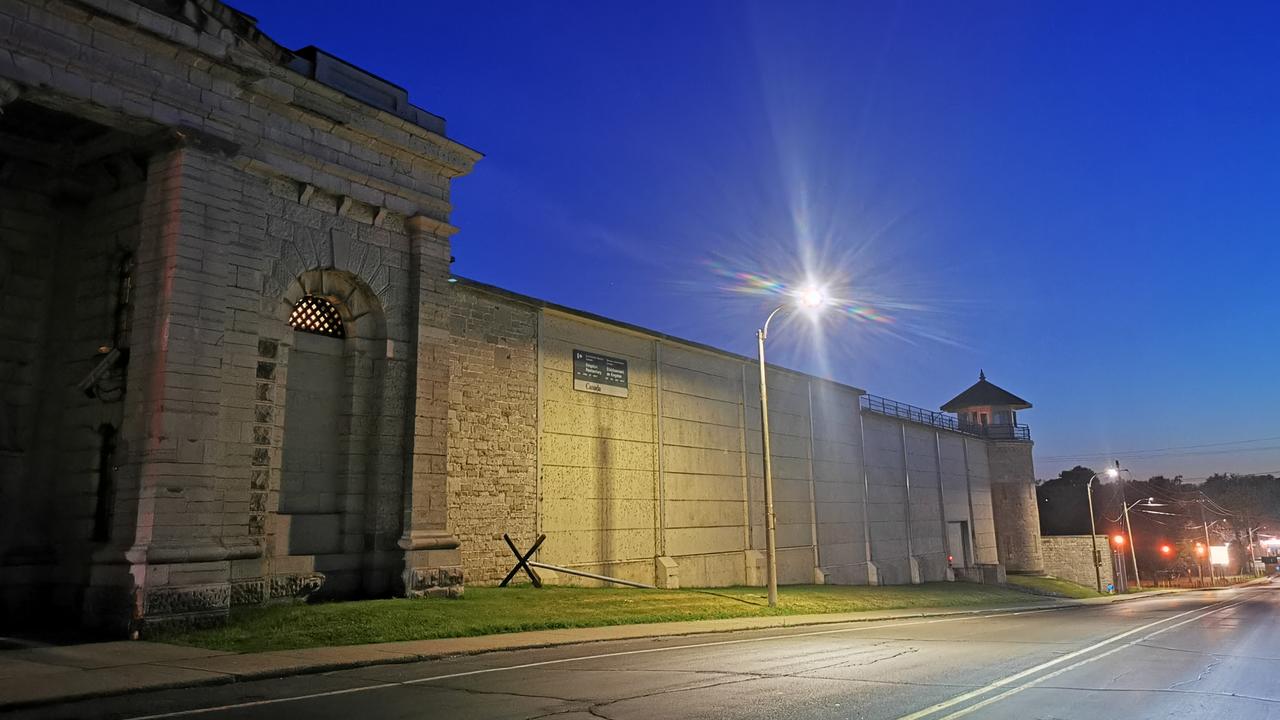A $US1250-a-head degustation takes an “increasingly bizarre and nightmarish” turn in The Menu starring Anya Taylor-Joy
A $US1250-a-head degustation takes an “increasingly bizarre and nightmarish” turn in The Menu starring Anya Taylor-Joy.

The Menu (MA15+)
In cinemas
★★★★
From time to time I enjoy gourmet dining; recently my wife and I savoured a splendid five-course meal at a restaurant in a small town in Central West NSW. But fine dining can easily become pretentious, and in British director Mark Mylod’s The Menu it becomes not only pretentious but sinister.
The film, cleverly scripted by Seth Reiss and Will Tracy, is set in a very high-end dining establishment named Hawthorne which is situated on an island off the coast of the northwest US. Diners, who have to reserve their places long in advance, pay $US1250 a head for a multi-course meal accompanied by vintage wines.
The meal begins when the all-powerful Slovakian-born chef, Julian Slowik (Ralph Fiennes), instructs his 12 clients (the maximum number the restaurant holds) to savour the “fat, salt, sugar, protein, bacteria, fungi and entire ecosystems” that he and his loyal staff of cooks will serve, insisting that the food – all of it sourced from the island and the sea around it – be “tasted, not eaten”.
The carefully chosen victims – for that’s what they become – include Tyler (Nicholas Hoult), a smug epicurean, who has brought along with him Margot (Anya Taylor-Joy), who isn’t really into this fancy food; restaurant critic Lillian Bloom (Janet McTeer) and her editor, Ted (Paul Adelstein); Richard (Reed Birney) and Anne (Judith Light), an older couple who are regular diners at the restaurant; an unnamed Hollywood film star (John Leguizamo) and Felicity (Aimee Carrero), and three obnoxious and dodgy tech guys, Soren (Arturo Castro), Bryce (Rob Yang) and Dave (Mark St Cyr). There’s also another guest, who sits alone and drinks a lot.
After the amuse bouche (cucumber and melon foam) – “Can you taste the goat?” asks Ms Bloom – the menu proper commences, and the details of it are displayed on the screen. Things soon become increasingly bizarre, and then nightmarish – and the film glides gradually from being a brutal satire of the affectations of haute cuisine into a thriller in which the unexpected becomes the norm.
Stylishly photographed by Peter Deming, The Menu becomes increasingly creepy with each new course. In the end the disparate pieces aren’t tied together in a totally satisfying way, but the film is very well worth seeing for its originality and ultra-black sense of humour. It’s a tasty movie experience in every sense, but you may not want to have dinner after viewing it.
She Said (M)
In cinemas
★★★★
During the 1990s and early 2000s, Miramax was a phenomenally successful independent film production and distribution company. Founded and operated by Harvey and Bob Weinstein, Miramax produced such major films as Pulp Fiction (1994) and Shakespeare in Love (1998) and was the US distributor of many important European films. Harvey was a fixture at the major film festivals – Cannes and Venice – during this period; he hosted lavish parties (not that I was ever invited to one) and special screenings of his films (some of these I attended). He was an unappealing character, but he seemed to know what he was doing. We didn’t know then about his appalling predatory treatment of women.
She Said is based on a book by the New York Times reporters, Jodie Kantor and Megan Twohey, who wrote the story the newspaper published on October 5, 2017, headlined “Harvey Weinstein Paid Off Sexual Harassment Accusers For Decades”. The film examines the determination of these two women journalists to expose a monster, no easy task when the victims were reluctant to speak on the record and Weinstein was protected by a phalanx of highly-paid lawyers.

In the fine tradition of other films in which newspapers exposed criminal activities (All the President’s Men, 1976 and Spotlight, 2015), She Said follows Kantor (Zoe Kazan) and Twohey (Carey Mulligan) as they diligently follow up every possible lead despite rejections and obstructions. Supported by their editor, Rebecca Corbett (Patricia Clarkson), and the newspaper’s senior editor, Dean Baquet (Andre Braugher), the two women track down Weinstein’s victims, who include actors – Gwyneth Paltrow, Rose McGowan and Ashley Judd – the latter playing herself – and members of the worldwide Miramax staff.
Weinstein himself is seen only from behind in one brief scene, though his recorded voice is heard as he bullies one hapless woman into sharing a hotel jacuzzi with him and massaging him. His crimes included masturbating in front of his victims and, sometimes, rape; and his legal team used non-disclosure contracts to silence the women after they were paid off.
Weinstein, whose legal troubles are not yet over, is serving a 23-year prison sentence thanks in no small part to the dedication of Kantor and Twohey, who put their own personal lives on hold to expose a monster. The investigation into Weinstein actually followed an investigation into Donald Trump before he was elected president in 2016. Early in the film, Twohey is talking to women who had experienced unwanted sexual advances from the candidate, but Trump denies knowing any of them and Twohey receives anonymous phone messages (“I’m going to rape you and murder you”).
She Said is a powerful film and a timely one.
Margrete Queen of the North (Margrete den Forste) (MA15+)
In cinemas
★★★★
Margrete Queen of the North is a superbly mounted drama set in a variety of Scandinavian countries at the end of the 14th century and the beginning of the 15th century.
The ruler, and founder of the Kalmar Union that united Sweden (which then also included Finland), Norway and Denmark for many years, Queen Margrete (Trine Dyrholm) presides over the three countries somewhat precariously. Her son, Oluf – or Olaf (Jakob Oftebro) – has died under rather mysterious circumstances 15 years earlier and her adopted son, Erik (Morton Hee Andersen), who was born in Pomerania, has assumed the role of King, although as Queen she makes all the decisions and keeps the rival members of the union together (the Norwegians are most difficult).
To offset a threat from Germany’s Teutonic Order, the Queen has arranged for Erik to marry Phillipa, the daughter of England’s Henry IV, but when she arrives at court, in company of William Bourcier (Paul Blackthorne) it is revealed that she is only a child who sleeps through the welcoming banquet.

Just as the Queen’s plans, approved of by Peder (an excellent Soren Malling), a priest and her closest adviser, seem to be coming to fruition, a fly in the ointment turns up: a man claiming to be Oluf arrives at court. At first the Queen says she doesn’t recognise him, but later she begins to wonder if he’s genuine.
“In war there are no winners,” proclaims Margrete at one point, and she’s determined to keep the union together while forging an alliance with England to keep the Germans at bay. The film is a fascinating drama, the more so because the mystery of Oluf’s identity has never been solved. Handsomely staged and very well directed by Charlotte Sieling, Margrete Queen of the North is a fine Scandinavian co-production.




To join the conversation, please log in. Don't have an account? Register
Join the conversation, you are commenting as Logout